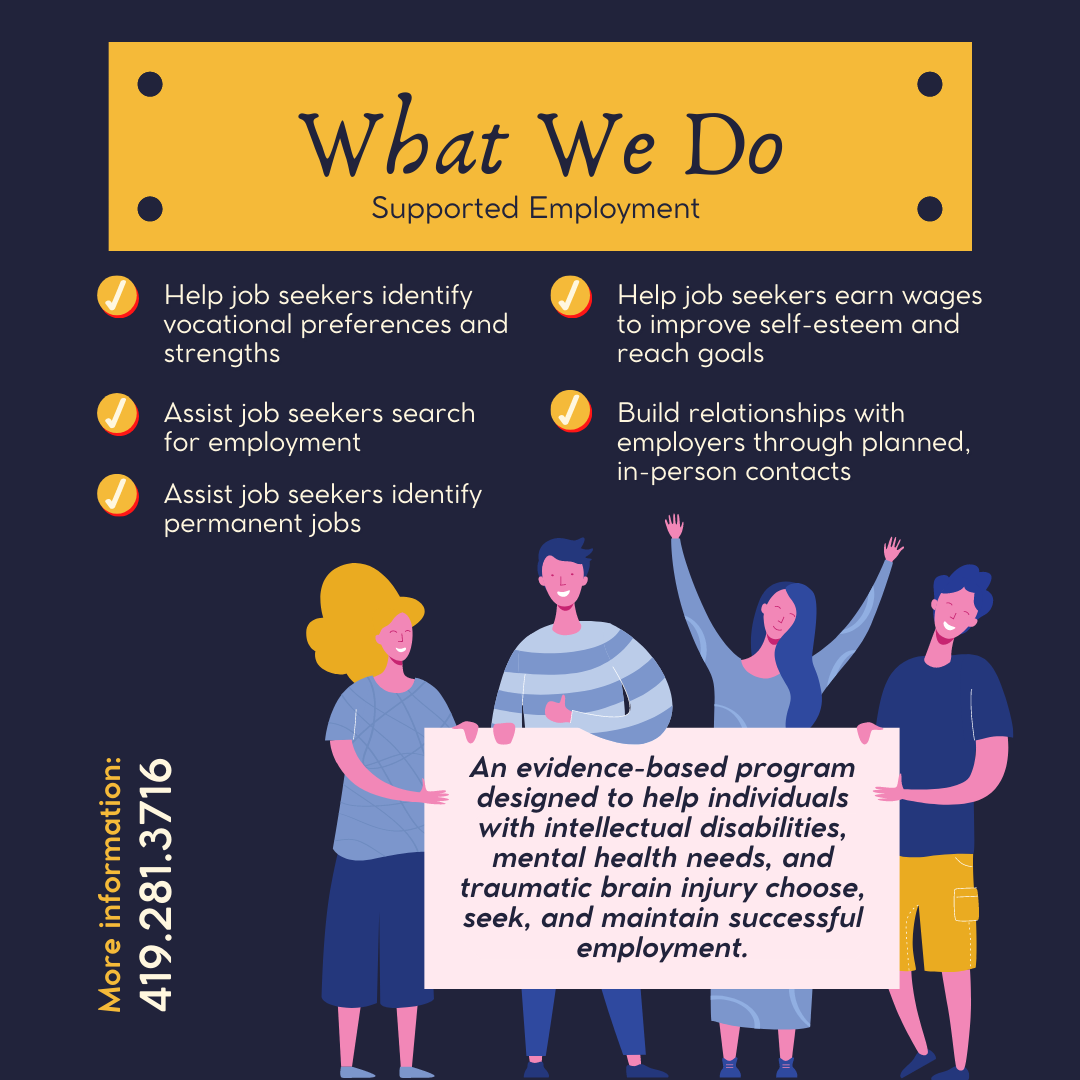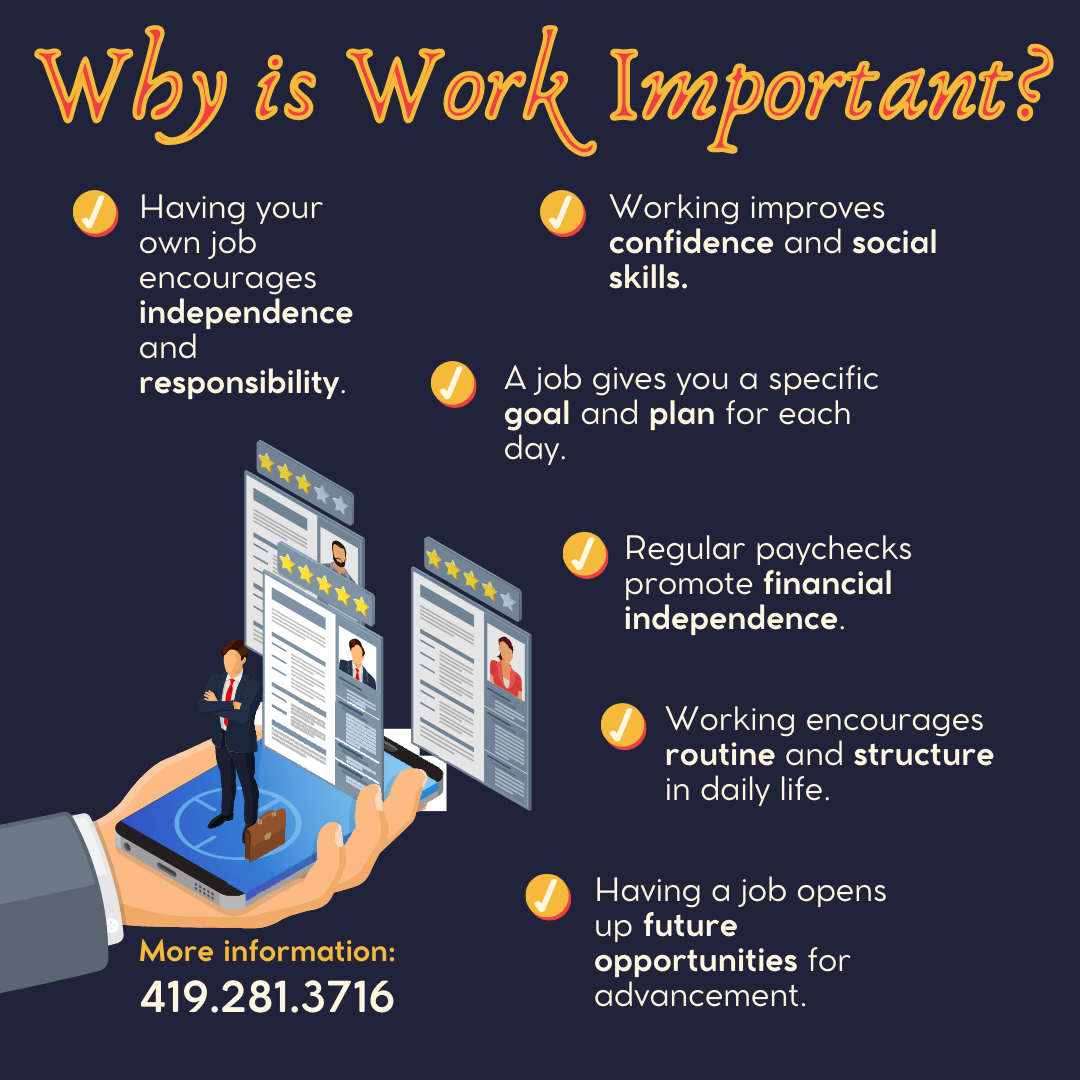Supported Employment
Work is Recovery
The Supported Employment Program is an evidence-based initiative designed to assist individuals with intellectual disabilities, mental health conditions, and traumatic brain injuries in identifying and securing part-time or full-time employment opportunities within the community. This program provides rapid job search and placement services tailored to each individual’s preferences and goals.
Emphasizing the belief that work is not simply a result of treatment or recovery but an essential component of both, Supported Employment integrates employment support with mental health services to promote long-term success.
Utilizing the Integrated Employment and Treatment Approach, the program combines vocational assistance with ongoing mental health care. Employment Specialists collaborate closely with a multidisciplinary team of professionals to address barriers that may impact both employment and recovery. These may include challenges such as medication side effects, persistent symptoms, cognitive difficulties, and other rehabilitation needs, such as improving social skills, securing transportation, or accessing childcare.
Why is work important?
- Having your own job encourages independence and responsibility
- Improves confidence and social skills
- Gives you a specific goal and plan for each day
- Promotes financial independence
- Encourages routine and structure in daily life
- Opens up future opportunities for advancement
Zero Exclusion
All people who want to work are eligible for employment services and can receive help even if they:
- Have experienced job loss(es) in the past
- Lose a job(s) while enrolled in the program
- Are still experiencing symptoms of mental illness
- Experience cognitive impairments (e.g. memory, problem-solving difficulties)
- Are still using alcohol or other drugs (however the use of alcohol and other drugs may limit job choices because many employers test for drug use. If job applicants can pass a drug test, their choices of jobs typically increase).
- Have a criminal history
- Do not know how to fill out an application or talk to employers
- Do not have previous job training or work experience
- Are afraid they might not learn from the job fast enough
- Are afraid they might not fit in with others
Source: "Core Principles-An Integrated Approach", Ohio Mental Health & Addiction Services
Download Supported Employment Rack Card









